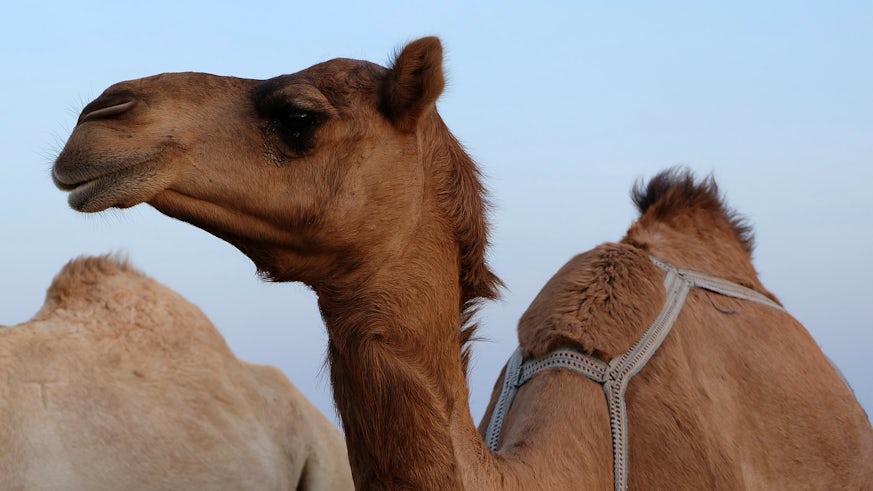Understanding the genetic history of Arabian camels
17 May 2016

A genetic study of dromedary (or Arabian) camels, carried out by scientists at the University of Vienna and Cardiff University, has found that the movements of ancient caravan routes may be responsible for the high level of genetic diversity found within the species.
Despite being used extensively by humans as transport across dry and arid landscapes for thousands of years, relatively little has been understood about this creature’s domestication and evolutionary history.
Through analysing a combination of modern and ancient camel DNA, the international research team discovered a significant level of shared genetic variation in modern camel populations, possibly due to the historic and widespread use of camels as a means of long-distance transportation.
Using sophisticated statistical techniques, the group also identified that today’s modern camels originated from wild populations in the southeast coast of the Arabian Peninsula. The study suggests that these wild camels, which are now extinct, periodically restocked domesticated populations. Unlike many other domesticated animals, modern camel populations have maintained their ancestral genetic diversity
The study was led by Dr Pamela Burger at the Veterinary Medicine University of Vienna, with collaboration Dr Pablo Orozco-terWengel and Daniel Pitt of Cardiff University School of Biosciences, and was published in the Proceedings of the National Academy of Science (USA).
Dr Orozco-terWengel described the work as “a perfect example of how mixing modern and ancient DNA samples, in combination with advanced statistical approaches, can reveal unexpected aspects of a species’ history and origins.”
The work also paves the way for further research into how and why camels are able to thrive in such harsh conditions. Dr Orozco-terWengel explains,
“I hope to continue the research on camel genetics to better understand how this species has adapted to the harsh environments in which it lives. The dromedary is an interesting example of a hardy livestock species that may be better suited than other livestock species to cope with climate change in several regions of the world.”